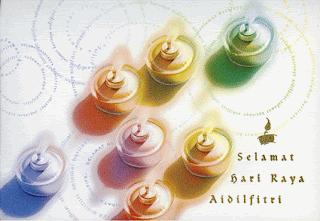Like more than a billion fellow Muslims around the world, Sulley Muntari began the monthlong fasting ritual of Ramadan on Aug. 22. Abstaining from food or drink during daylight hours is challenging enough for the average person, but for the Ghana-born Muntari, a professional soccer player with Italy's Serie A team Inter Milan, running more than six miles per game on an empty stomach might have proved to be too much. In his first match after the start of Ramadan, the midfielder was removed from the game after just half an hour of play. (See the top 10 most colorful religious festivals.)
Milan coach Jose Mourinho cited Muntari's "lack of energy" on the pitch as the reason for his removal, suggesting that "Ramadan has not arrived at the ideal moment for a player to play a football match." Mourinho hinted that he may keep Muntari out matches for the rest of the month, angering Muslims and troubling Inter Milan fans.
So what is this ritual for which Muntari is jeopardizing his season? One of the five pillars of faith for Muslims, Ramadan is the the ninth month of the lunar calendar and the holiest period of the Islamic year. It's thought to be the month that the Koran was first revealed by God to the Prophet Muhammad in the year A.D. 610. (Read "Soccer Star Benched for Fasting During Ramadan.")
The rules of Ramadan are fairly straightforward: for one month, all practicing, able-bodied Muslims over the age of 12 are forbidden to eat or drink from sunup to sundown. Muslims believe that during this month the gates of hell close — meaning the devil is unable to tempt them during a month of discipline, charity and self-control. The objective of the fast, which also prohibits participating in "sensual pleasures" such as smoking, sex and even listening to music during daylight hours, is to diminish believers' dependence on material goods, purify their hearts and establish solidarity with the poor to encourage charitable works during the year. It's as much a period of self-growth as of self-denial: Muhammad reportedly said, "He who does not abandon falsehood in word and action in accordance with fasting, God has no need that he should abandon his food and drink."
The first Ramadan is thought to have occurred during the middle of summer, explaining why the root of its name translates into Arabic as "the scorcher." A typical day starts as early as 3 a.m. with the predawn meal called the sahur, usually rich in protein and carbohydrates to get the faster through the long, foodless day. The rest of the day is spent reciting prayers, abstaining from bad deeds and reading the Koran. Fasters are expected to read the entire holy book within the month, and many mosques have taken to splitting it into 30 even portions recited in daily sermons. The fast lasts until sundown — or until it's too dark to "distinguish a white thread from a black thread," according to the Koran — and is broken with a small meal called an iftar which is followed by the Magrib prayer before the fasters join their families and invite the poor for a larger celebratory meal.
The breaking of the fast is often a decadent affair in wealthier Gulf countries like the United Arab Emirates, where well-to-do Muslims gather in air-conditioned tents, cruise ships or five-star hotels to feast on meals with multiple courses. In some countries, the fast carries the force of law: in Algeria, six people were jailed last year for failing to observe the fast, while in Iran authorities have shut down restaurants for not closing during the day. Other places have their own unique requirements: when Ramadan falls during the summer months, as it does this year, Muslims living in northern countries face fasting through as many as 19 hours of daylight; Muslim scholars have suggested that worshippers in these climes follow the daylight hours of the nearest Muslim-majority nation.
The end of Ramadan is signaled by the sighting of the new moon that signals the start of the next lunar month; it's celebrated by a huge festival called 'Id al-Fitr (the Feast of Fast-Breaking) where entire villages celebrate together. While Muslim leaders in Italy who criticized Mourinho's decision to pull his player argued that the "mental and psychological stability" achieved through the discipline of Ramadan outweighs the physical strain of the fast, for Muntari, 'Id probably can't come soon enough.
Source:
Time Magazine

